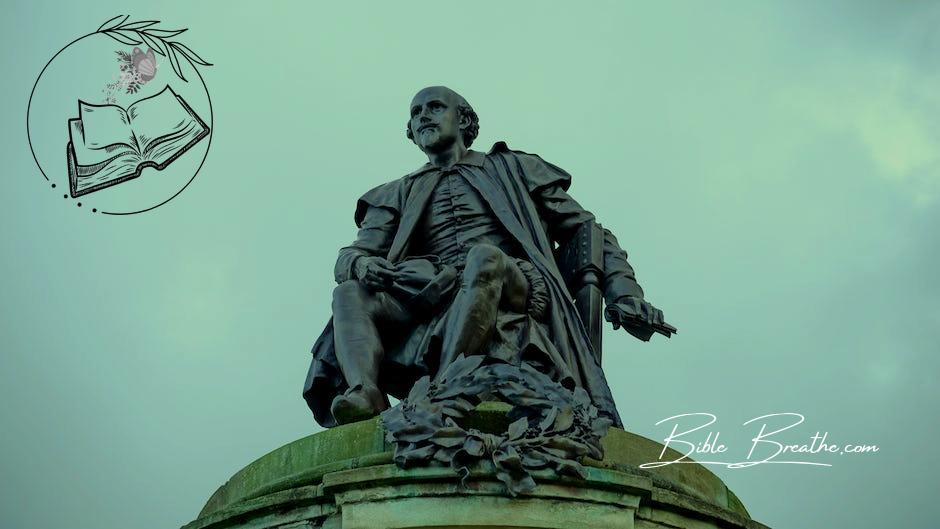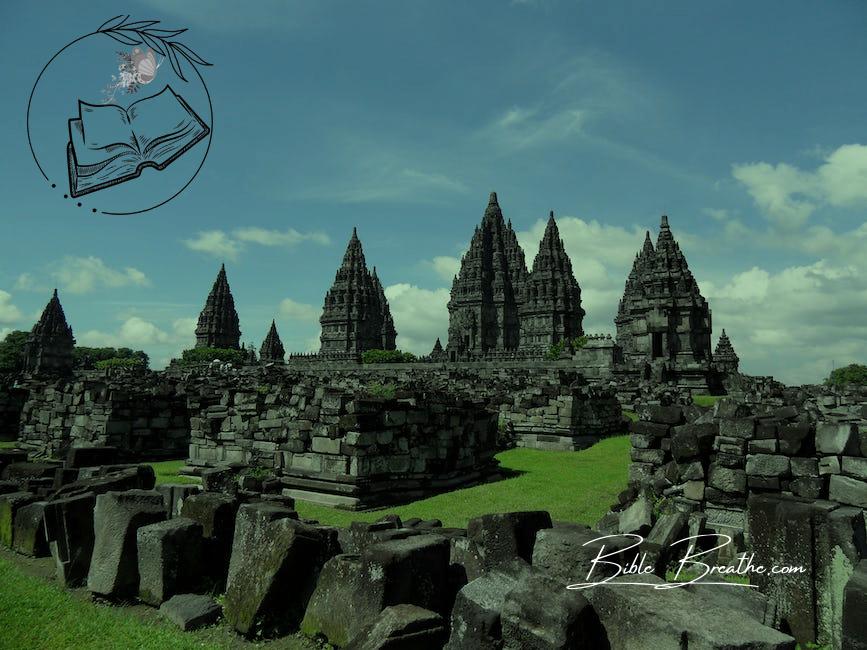Key Takeaways
In the Bible, Turkey was referred to by several names. Here are six key points summarizing the biblical references:
- Lydia: The region of modern-day Turkey was known as Lydia in the Bible. Lydia was a kingdom in western Anatolia, which is now part of Turkey. The apostle Paul preached in Lydia and converted its queen, Lydia, to Christianity (Acts 16:14-15).
- Phrygia: Phrygia was another ancient region in western Anatolia, which is now part of Turkey. The Bible mentions Phrygia as the place where the apostle Paul and his companions traveled (Acts 16:6-7).
- Asia Minor: Asia Minor was the name given to the western part of modern-day Turkey, which includes the regions of Lydia, Phrygia, and others. The Bible refers to Asia Minor as the area where the apostle Paul preached and established churches (1 Corinthians 16:19, 2 Corinthians 1:1).
- Mysia: Mysia was a region in northwest Turkey, which is now part of the modern-day country. The Bible mentions Mysia as the place where the apostle Paul and his companions attempted to preach but were refused (Acts 16:7).
- Pamphylia: Pamphylia was a region in southern Turkey, which is now part of the modern-day country. The Bible refers to Pamphylia as the place where the apostle Paul and his companions traveled (Acts 13:13).
- Galatia: Galatia was a region in central Turkey, which is now part of the modern-day country. The Bible mentions Galatia as the place where the apostle Paul preached and established churches (Galatians 1:2, 1 Corinthians 16:1).
What Was Turkey Called in the Bible?
Well, let’s take a journey through the good Book, my friends.
Turkey, you see, it’s not just about gobble-gobble on Thanksgiving.
No, it’s a land steeped in biblical history, where names like Phrygia and Lydia ring out, and the Tigris and Euphrates Rivers flow through its heart.
Picture this: it’s where the Apostle Paul walked, where the Hittites, Persians, Greeks, and Romans left their mark.
And yes, it’s also where the Ottoman Empire once reigned.
But beyond history, it’s a land of stories, from the birthplace of that great apostle to the heart-wrenching events like the Armenian and Greek genocides.
So, folks, grab your spiritual compass, and let’s explore the biblical tapestry of Turkey, a place where history, faith, and cultures intertwined in a way that’ll leave you truly inspired.
📜🌍
Discovering the Ancient Name of Turkey: A Biblical Quest

Photo modified by BibleBreathe.com. Original photo by Şinasi Müldür on Pexels
Ever had your curiosity piqued about what folks back in biblical days called the land we now know as Turkey?
Buckle up, because we’re about to embark on an intriguing journey through time.
Hellenistic Kingdoms and Jewish Sojourns
To grasp what ancient folks called Turkey, we need to hop back to the days of the Hellenistic Kingdoms.
These were the heirs to Alexander the Great’s sprawling empire, and they held dominion over various lands, including the one on our radar.
And it shall come to pass in that day, that the great trumpet shall be blown, and they shall come which were ready to perish in the land of Assyria, and the outcasts in the land of Egypt, and shall worship the Lord in the holy mount at Jerusalem.” – Isaiah 27:13 (KJV)
Among these kingdoms, the Seleucids took center stage.
They reigned over chunks of Anatolia, which we now call Turkey.
But the significant twist came around 240 BC.
2000 Jewish Families Setting Sail
Picture this: a convoy of 2000 Jewish families embarking on a pilgrimage to Phrygia and Lydia.
This migration set the stage for a Jewish footprint in this land.
The Seleucids greenlit these families to settle in what’s present-day Turkey.
This historical migration isn’t just a blip in biblical annals.
It’s like a missing puzzle piece, connecting us to the bygone days and the faces that graced them.
“Thou shalt neither vex a stranger, nor oppress him: for ye were strangers in the land of Egypt.” – Exodus 22:21 (KJV)
These Jewish settlers brought with them their customs, faith, and traditions, leaving an indelible mark on the region’s historical tapestry.
Wrapping it Up
So, what did they call Turkey in the Bible?
Well, it didn’t go by the moniker we use today, but it was a land steeped in history and importance.
The arrival of Jewish families in Phrygia and Lydia was a turning point, adding a rich layer to Anatolia’s diverse history.
As we dig deeper, we’ll unravel more layers of history and unveil the many names and faces that have shaped this remarkable land over the ages.
Get ready for a historical treasure hunt!
Turkey in the Tapestry of Ancient Times

Photo modified by BibleBreathe.com. Original photo by Burak Karaduman on Pexels
Ever wondered what ancient folks called that patch of land we now tag as Turkey?
It’s like peeling back the layers of a buried treasure chest in the annals of biblical tales.
So, let’s take a delightful stroll through history and unveil the mystery behind the term, “rooster of India.”
The Hebrew Clue to Turkey: Tarnegol Hodu
In the sacred scriptures, Turkey isn’t spotlighted with its modern moniker.
Instead, it’s got this intriguing alias – “Tarnegol Hodu.” Now, that might sound a tad peculiar, but let’s break it down.
“Tarnegol” in Hebrew translates to our friendly farm rooster, and “Hodu” has ties to what we now know as “India.” So, why connect Turkey to the “rooster of India”?
Well, it’s like an ancient enigma that points to Turkey’s unique geographical position.
Picture this: just as a rooster lets out a hearty crow to welcome the dawn, Turkey played a similar role in the dawn of civilization.
Its roots reach back into the ancient sands of time.
Positioned at the crossroads of empires and cultures, like the rooster announcing a new day, Turkey was the bridge between East and West, linking Asia and Europe, just like the rooster’s crow heralds the break of dawn.
“Rise and shine; a new day is here, and the LORD’s glory is shining upon you.” – Isaiah 60:1 (KJV)
Digging into Turkey’s Ancient Biblical Tapestry
Beyond its unique alias, Turkey’s biblical history is a captivating tale woven with threads of grand empires like the Seleucids, Phrygia, and Lydia, along with the mention of vibrant cities like Tarsus.
It’s a land hugged by the Tigris and Euphrates Rivers, guarded by the towering Taurus Mountains, and historically known as Asia Minor or Anatolia.
Turkey’s story is also deeply interwoven with key moments in Christian history, where legends like the Apostle Paul left their mark.
Moreover, it’s a place where history’s pages bear witness to significant happenings, encompassing the rise and fall of towering empires – the Hittites, Persians, Greeks, Romans, Byzantines, and Ottomans.
Yet, like any epic saga, Turkey’s history wears both bright and somber hues, including the shadows of darker chapters like the Armenian, Greek, and Assyrian genocides, as well as its role in the Ottoman Empire.
So, the next time you mull over what the Bible calls Turkey, remember it’s a land steeped in history, where the rooster’s crow echoes through the ages, heralding the dawn of countless civilizations.
Now, let’s venture deeper into the ancient tapestry of Turkey’s biblical past and immerse ourselves in its vibrant history and rich culture.
Turkey’s Biblical Landscape: An Unveiling of Historical Significance

Photo modified by BibleBreathe.com. Original photo by Muharrem Aydın on Pexels
As we dig into the annals of time, we stumble upon a land we now label as Turkey—a land that held immense sway in the biblical story.
Let’s peel back the layers and uncover the historical and geographical significance of this extraordinary region.
The Cradle of Mighty Rivers
Turkey isn’t just a blip on the modern map; it’s the birthplace of ancient rivers.
The Tigris and Euphrates Rivers, often hailed as the “cradle of civilization,” sprout from the eastern realms of this land.
These rivers quenched the thirst of ancient Mesopotamia, nurturing some of humanity’s earliest societies.
“And a river went out of Eden to water the garden; and from thence it was parted, and became into four heads.” – Genesis 2:10 (KJV)
Imagine standing at the inception of these majestic rivers, where history and mythology intertwine.
It’s akin to witnessing the genesis of human progress itself.
Turkey: A Crossroad of Antiquity
In the ancient world, Turkey held a prime spot at the crossroads of history.
It bridged continents and cultures, blending into a melting pot of ideas and influences.
Picture this: traders from the East and the West converging in the vibrant city of Tarsus.
This city, now part of modern-day Turkey, was a bustling center of trade and culture, significantly shaping the course of history.
For ye have heard of my conversation in time past in the Jews’ religion, how that beyond measure I persecuted the church of God, and wasted it.” – Galatians 1:13 (KJV)
The Apostle Paul, a towering figure in early Christianity, hailed from Tarsus.
His travels took him throughout Anatolia, spreading the Christian message far and wide.
Wrapping it Up
So, what did they call this land in the Bible?
While it might not have carried the same label, its historical and geographical significance remains undeniable.
From birthing powerful rivers to serving as a junction of ancient civilizations, Turkey has etched its presence into the grand narrative of human history.
As we plunge deeper into the corridors of time, we’ll keep unearthing the concealed treasures of this land and its role in the sweeping story of the Bible.
Stay tuned for more historical revelations!
Apostle Paul: The Tapestry Woven in Tarsus

Photo modified by BibleBreathe.com. Original photo by Mike Bird on Pexels
In this biblical tapestry, there’s a figure whose story intertwines with the landscapes of Turkey in a profound way—Apostle Paul.
Let’s unravel the tale, focusing on his roots in Tarsus and the profound connection between Tarsus and the majestic Taurus Mountains in Paul’s extraordinary life.
Tarsus: Where Paul’s Journey Began
Imagine hopping into a time machine and landing in the ancient city of Tarsus.
This bustling city, snuggled along Turkey’s southern coast, witnessed the dawn of a remarkable individual—the birthplace of Apostle Paul.
Growing up in Tarsus, amidst its lively streets and diverse community, shaped Paul’s upbringing.
The multicultural ambiance exposed him to a melting pot of cultures, languages, and ideas.
Little did anyone suspect that this young lad from Tarsus would carve his name as one of Christianity’s most influential figures.
Tarsus instilled in Paul a distinctive perspective—an outlook enabling him to bridge gaps between diverse cultures and propagate Christianity’s message far and wide.
“I’m a Tarsian, born and bred, hailing from the vibrant city of Cilicia. I received my education in Jerusalem under Gamaliel.” – Acts 22:3 (KJV)
The Taurus Mountains: More Than Just a Landscape
Yet, Tarsus wasn’t merely a dot on the map; it stood strategically close to the formidable Taurus Mountains.
These colossal peaks served as a natural border between ancient Cilicia and Cappadocia.
Beyond geography, they symbolized the challenges and opportunities Paul encountered.
Much like Paul’s journeys across the rugged Taurus Mountains, he faced a plethora of obstacles while spreading Christianity’s message.
Yet, akin to a resolute traveler scaling peaks, he persevered, sowing the seeds of faith in countless hearts.
The Taurus Mountains stood as a testament to Paul’s fortitude and steadfast commitment to his mission.
They remind us that, even in the face of adversity, one can conquer hurdles, just as Paul did, disseminating Christ’s teachings across Asia Minor and beyond.
So, when Turkey comes to mind in a biblical light, it’s not just about names or places—it’s about the extraordinary individuals and tales that left an enduring mark on this land.
In the case of Tarsus and the Taurus Mountains, they serve as potent symbols of faith, resilience, and the everlasting legacy of Apostle Paul.
Now, let’s continue our expedition through the biblical history of Turkey and uncover more enthralling revelations about this ancient and impactful land.
Unveiling Turkey’s Many Biblical Names

Photo modified by BibleBreathe.com. Original photo by Francesco Ungaro on Pexels
Turkey, the land we stroll through today, has donned various names throughout biblical history.
Let’s peel back the layers and unearth these intriguing aliases that add depth to its historical narrative.
Asia Minor: A Name of Significance
One of the prominent monikers for the land we now dub Turkey is “Asia Minor.” This term points to the western expanse of modern Turkey and played a pivotal role in the Christian narrative.
“And they passing by Mysia came down to Troas.” – Acts 16:8 (KJV)
The Apostle Paul set forth on his missionary ventures through Asia Minor, imprinting an enduring mark on the early growth of Christianity.
The Anatolian Peninsula: A Geographical Marvel
Anatolia, often tagged as the Anatolian Peninsula, blankets most of present-day Turkey.
Its rugged topography and diverse landscapes have carved the path of history.
Picture the Anatolian plateau, where empires rose and crumbled, and where the Hittites, Persians, Greeks, Romans, Byzantines, and Ottomans made their imprint.
“The earth is the Lord’s, and the fulness thereof; the world, and they that dwell therein.” – Psalm 24:1 (KJV)
This vast plateau has stood as a silent witness to the ebb and flow of civilizations, a treasure trove of historical tales.
Asian Turkey: A Modern Label
In our modern era, we often label the eastern part of Turkey as “Asian Turkey.” It’s a testament to the nation’s unique positioning, straddling both Europe and Asia.
And the kings of the earth, who have committed fornication and lived deliciously with her, shall bewail her, and lament for her, when they shall see the smoke of her burning.” – Revelation 18:9 (KJV)
Much like the prophetic vision in Revelation, Turkey’s location has positioned it as a spectator to the ever-changing tides of history.
Wrapping it Up
So, what did they call this land in the Bible?
Well, it wore many hats, each carrying its own weight.
From Asia Minor’s pivotal role in the Christian saga to the deep-rooted history of the Anatolian Peninsula, and the modern reference to Asian Turkey, this land’s identity has morphed over the years.
These names are akin to chapters in a captivating book, each unveiling a different facet of Turkey’s intricate history.
As we press forward in our expedition, we’ll plunge even deeper into the narratives and mysteries this land cradles.
Stay tuned for more revelations!
Turkey’s Christian Legacy and the Dark Pages of Genocide

Photo modified by BibleBreathe.com. Original photo by Monstera Production on Pexels
In the vast canvas of biblical history and the spread of Christianity, Turkey unveils a tapestry with both vibrant hues and somber shadows.
In this part, we’ll navigate through the decline of Christianity in Turkey and the heavy shadow cast by the late Ottoman genocides, including the Armenian, Greek, and Assyrian genocides.
The Fading Light of Christianity
Once upon a time, Turkey cradled early Christian communities.
Cities like Ephesus and Antioch were lively centers where the teachings of Jesus flourished.
The apostles, including Paul, walked these ancient streets, sharing the gospel.
But as the sands of time slipped through the hourglass, winds of change swept across the land.
The decline of Christianity in Turkey sprouted from various roots, including political shifts, cultural shifts, and the emergence of alternate beliefs.
It’s akin to witnessing a sunset over a once-bustling city; the brilliance of Christianity waned, making way for other convictions.
“You all are the light of the world. A city on a hill cannot be hidden.” – Matthew 5:14 (KJV)
The Shadowy Mark of Genocide
As we dig deeper into Turkey’s history, we confront a chapter draped in darkness—the late Ottoman genocides.
The Armenian, Greek, and Assyrian genocides are searing scars etched into the nation’s conscience.
These atrocities, resembling a tempest of darkness, swept over the land, leaving shattered lives and scattered communities in their wake.
The echoes of that suffering reverberate to this day, reminding us of the profound impact of such historical tragedies.
In the midst of these horrors, Turkey’s Christian communities endured immense trials.
Many were uprooted, their churches reduced to ruins, and their faith pushed to the edge.
Yet, like a flickering candle in the darkest of nights, some survived, and their resilience stands as a testament to the enduring strength of faith.
“The Lord is my shepherd; I shall not want. He makes me lie down in green pastures. He leads me beside the still waters.” – Psalm 23:1-2 (KJV)
In summary, Turkey’s Christian journey weaves a complex tale of rise and fall, light and shadow.
As we reflect on this history, let it serve as a poignant reminder of the lasting power of faith and the imperative to recall and learn from the past.
Now, as we press on in our expedition through Turkey’s biblical history, we’ll unravel more layers of this intricate narrative and the remarkable resilience of its people.
Turkey in the Biblical Landscape: What Was Turkey Called in the Bible?

Photo modified by BibleBreathe.com. Original photo by Pixabay on Pexels
Turkey, a land steeped in history as diverse as its beautiful landscapes, holds secrets from ages past.
Let’s take a journey through the annals of time to unveil the name Turkey was known by in the pages of the Bible.
A Tapestry of Names
The land we now identify as Turkey has seen the rise and fall of great empires and cultures, each leaving its mark on this historical canvas.
The Hittites: Picture a time when the Hittites, one of the earliest Indo-European civilizations, reigned over Anatolia during the Bronze Age.
It’s a testament to Turkey’s deep-rooted history.
“And the children of Heth, and the children of Phelez, and the children of Rephaiah.” – 1 Chronicles 1:13 (KJV)
The Persians: The Persian Empire stretched its influence into Anatolia, shaping its culture and history.
Traces of this influence linger in the remnants of ancient Persian architecture.
The Greeks: The ancient Greeks, with legendary cities like Troy, Ephesus, and Halicarnassus, added their unique chapter to Turkey’s story.
“For in him we live, and move, and have our being; as certain also of your own poets have said, For we are also his offspring.” – Acts 17:28 (KJV)
The Romans: Anatolia played a vital role in the Roman Empire, nurturing early Christian communities, as evident in the biblical book of Acts.
The Byzantines: Modern-day Istanbul, once Constantinople, stood as the heart of the Byzantine Empire, imprinting its influence on art, culture, and religion into Turkey’s history.
The Ottomans: The Ottoman Empire’s grandeur and enduring legacy ruled over Turkey for centuries.
Unveiling the Name
So, what was Turkey called in the Bible?
As we peel back the layers of history, we find that the biblical land we now know as Turkey was referred to by various names through the ages.
Its rich tapestry of history is woven with the stories of people and empires that have left an indelible mark on this land.
“And ye shall know the truth, and the truth shall make you free.” – John 8:32 (KJV)
Stay with us as we delve deeper into this historical journey, uncovering the names and stories that define the biblical land we now call Turkey.
Frequently Asked Questions (FAQs) About What Was Turkey Called In The Bible
What is the significance of Turkey in the Bible?
Turkey, known historically as Asia Minor, is mentioned in the Bible as a location for early Christian communities.
It’s associated with the travels of the apostles and played a role in the spread of Christianity in the ancient world.
How did the name “Turkey” come about in biblical terms?
The name ‘Turkey’ doesn’t have biblical origins.
It’s derived from the country’s history and geography.
The Bible doesn’t mention modern nations or their names, as it was written long before the formation of contemporary countries.
What role did Turkey play in the spread of Christianity?
Turkey, known historically as Asia Minor, holds significance in Christian history.
It was an early center for Christianity, with various biblical sites, including places associated with the missionary journeys of the apostle Paul.
The region played a pivotal role in the early dissemination and growth of the Christian faith.
Matt Turner
I’m Matt, and I love breaking down Bible verses in a way that’s easy to understand and apply to everyday life. My goal is to help you connect with God’s Word and find practical ways to live it out. Whether you’re new to the Bible or just looking for some fresh insights, I’m here to walk with you and share what I’ve learned along the way.

